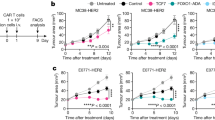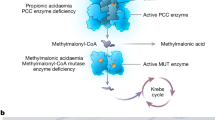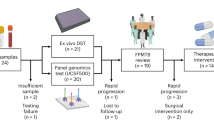Abstract
Efficacy and toxicity of anthracycline treatment in acute myeloid leukemia (AML) is mediated by reactive oxygen species (ROS). NADPH oxidase is the major endogenous source of ROS and a key mediator of oxidative cardiac damage. The impact of NADPH oxidase polymorphisms (CYBA:rs4673, NCF4:rs1883112, RAC2:rs13058338) was evaluated in 225 adult de novo AML patients. Variant alleles of NCF4 and RAC2 were related to higher complete remission (P=0.035, P=0.016), and CYBA homozygous variant showed lower overall survival with recessive model (P=0.045). Anthracycline-induced cardiotoxicity was associated to NCF4 homozygous variant (P=0.012) and CYBA heterozygous genotype (P=0.027). Novel associations were found between variant allele of CYBA and lower lung and gastrointestinal toxicities, and a protective effect in nephrotoxicity and RAC2 homozygous variant. Moreover, RAC2 homozygous variant was related to delayed thrombocytopenia recovery. This study supports the interest of NADPH oxidase polymorphisms regarding efficacy and toxicity of AML induction therapy, in a coherent integrated manner.
This is a preview of subscription content, access via your institution
Access options
Subscribe to this journal
Receive 6 print issues and online access
$259.00 per year
only $43.17 per issue
Buy this article
- Purchase on Springer Link
- Instant access to full article PDF
Prices may be subject to local taxes which are calculated during checkout

Similar content being viewed by others
References
Minotti G, Menna P, Salvatorelli E, Cairo G, Gianni L . Anthracyclines: molecular advances and pharmacologic developments in antitumor activity and cardiotoxicity. Pharmacol Rev 2004; 56: 185–229.
Lyu YL, Kerrigan JE, Lin CP, Azarova AM, Tsai YC, Ban Y et al. Topoisomerase II beta mediated DNA double-strand breaks: implications in doxorubicin cardiotoxicity and prevention by dexrazoxane. Cancer Res 2007; 67: 8839–8846.
Wojnowski L, Kulle B, Schirmer M, Schlüter G, Schmidt A, Rosenberger A et al. NAD(P)H oxidase and multidrug resistance protein genetic polymorphisms are associated with doxorubicin-induced cardiotoxicity. Circulation 2005; 112: 3754–3762.
Reichwagen A, Ziepert M, Kreuz M, Gödtel-Armbrust U, Rixecker T, Poeschel V et al. Association of NADPH oxidase polymorphisms with anthracycline-induced cardiotoxicity in the RICOVER-60 trial of patients with aggressive CD20(+) B-cell lymphoma. Pharmacogenomics 2015; 16: 361–372.
Visscher H, Ross CJ, Rassekh SR, Barhdadi A, Dubé MP, Al-Saloos H et al. Pharmacogenomic prediction of anthracycline-induced cardiotoxicity in children. J Clin Oncol 2012; 30: 1422–1428.
Armenian SH, Ding Y, Mills G, Sun C, Venkataraman K, Wong FL et al. Genetic susceptibility to anthracycline-related congestive heart failure in survivors of haematopoietic cell transplantation. Br J Haematol 2013; 163: 205–213.
Vulsteke C, Pfeil AM, Schwenkglenks M, Pettengell R, Szucs TD, Lambrechts D et al. Impact of genetic variability and treatment-related factors on outcome in early breast cancer patients receiving (neo-) adjuvant chemotherapy with 5-fluorouracil, epirubicin and cyclophosphamide, and docetaxel. Breast Cancer Res Treat 2014; 147: 557–570.
Hertz DL, Caram MV, Kidwell KM, Thibert JN, Gersch C, Seewald NJ et al. Evidence for association of SNPs in ABCB1 and CBR3, but not RAC2, NCF4, SLC28A3 or TOP2B, with chronic cardiotoxicity in a cohort of breast cancer patients treated with anthracyclines. Pharmacogenomics 2016; 17: 231–240.
Vulsteke C, Pfeil AM, Maggen C, Schwenkglenks M, Pettengell R, Szucs TD et al. Clinical and genetic risk factors for epirubicin-induced cardiac toxicity in early breast cancer patients. Breast Cancer Res Treat 2015; 152: 67–76.
Rossi D, Rasi S, Franceschetti S, Capello D, Castelli A, De Paoli L et al. Analysis of the host pharmacogenetic background for prediction of outcome and toxicity in diffuse large B-cell lymphoma treated with R-CHOP21. Leukemia 2009; 23: 1118–1126.
Gustafson HL, Yao S, Goldman BH, Lee K, Spier CM, LeBlanc ML et al. Genetic polymorphisms in oxidative stress-related genes are associated with outcomes following treatment for aggressive B-cell non-Hodgkin lymphoma. Am J Hematol 2014; 89: 639–645.
Megías-Vericat JE, Montesinos P, Herrero MJ, Bosó V, Martínez-Cuadrón D, Poveda JL et al. Pharmacogenomics and the treatment of acute myeloid leukemia. Pharmacogenomics 2016; 7: 1245–1272, [Epub ahead of print]..
Miller AB, Hoogstraten B, Staquet M, Winkler A . Reporting results of cancer treatment. Cancer 1981; 47: 207–214.
Cheson BD, Bennett JM, Kopecky KJ, Büchner T, Willman CL, Estey EH et al. Revised recommendations of the International Working Group for Diagnosis, Standardization of Response Criteria, Treatment Outcomes, and Reporting Standards for Therapeutic Trials in Acute Myeloid Leukemia. J Clin Oncol 2003; 21: 4642–4649.
Colovic N, Tomin D, Vidovic A, Suvajdzic N, Jankovic G, Palibrk V et al. Pretreatment prognostic factors for overall survival in primary resistant acute myeloid leukemia. Biomed Pharmacother 2012; 66: 578–582.
Cave AC, Brewer AC, Narayanapanicker A, Ray R, Grieve DJ, Walker S et al. NADPH oxidases in cardiovascular health and disease. Antioxid Redox Signal 2006; 8: 691–728.
Schirmer M, Hoffmann M, Kaya E, Tzvetkov M, Brockmoller J . Genetic polymorphisms of NAD(P)H oxidase: variation in subunit expression and enzyme activity. Pharmacogenomics J 2008; 8: 297–304.
Guzik TJ, West NE, Black E, McDonald D, Ratnatunga C, Pillai R et al. Functional effect of the C242T polymorphism in the NAD(P)H oxidase p22phox gene on vascular superoxide production in atherosclerosis. Circulation 2000; 102: 1744–1747.
Wyche KE, Wang SS, Griendling KK, Dikalov SI, Austin H, Rao S et al. C242T CYBA polymorphism of the NADPH oxidase is associated with reduced respiratory burst in human neutrophils. Hypertension 2004; 43: 1246–1251.
Shimo-Nakanishi Y, Hasebe T, Suzuki A, Mochizuki H, Nomiyama T, Tanaka Y et al. Functional effects of NAD(P)H oxidase p22(phox) C242T mutation in human leukocytes and association with thrombotic cerebral infarction. Atherosclerosis 2004; 175: 109–115.
Fang S, Wang L, Jia C . Association of p22phox gene C242T polymorphism with coronary artery disease: a meta-analysis. Thromb Res 2010; 125: e197–e201.
Windsor RE, Strauss SJ, Kallis C, Wood NE, Whelan JS . Germline genetic polymorphisms may influence chemotherapy response and disease outcome in osteosarcoma: a pilot study. Cancer 2012; 118: 1856–1867.
Hoffman M, Schirmer M, Tzvetkov M, Kreuz M, Ziepert M, Wojnowski L et al. A functional polymorphism in the NAD(P)H oxidase subunit CYBA is related to gene expression, enzyme activity, and outcome in non-Hodgkin lymphoma. Cancer Res 2010; 70: 2328–2338.
Cascales A, Pastor-Quirante F, Sánchez-Vega B, Luengo-Gil G, Corral J, Ortuño-Pacheco G et al. Association of anthracycline-related cardiac histological lesions with NADPH oxidase functional polymorphisms. Oncologist 2013; 18: 446–453.
Deng S, Wojnowski L . Genotyping the risk of anthracycline-induced cardiotoxicity. Cardiovasc Toxicol 2007; 7: 129–134.
Li X, Shao M, Wang S, Zhao X, Chen H, Qian J et al. Heterozygote advantage of methylenetetrahydrofolate reductase polymorphisms on clinical outcomes in advanced non-small cell lung cancer (NSCLC) patients treated with platinum-based chemotherapy. Tumour Biol 2014; 35: 11159–11170.
Morrison BA, Davis C, Ucisik-Akkaya E, Tevfik Dorak M . MHC associations in childhood leukemia: identification of heterozygote advantage. Hum Immunol 2008; 69: S69 (abstract 180-P).
Acknowledgements
This study was supported by grants from the ‘Instituto Carlos III’ (PIE13/00046) and the ‘Instituto Investigación Sanitaria La Fe’ (2013/0331) assigned to the Pharmacy and Hematology Departments and the Pharmacogenetics Unit of the ‘Instituto Investigación Sanitaria La Fe’ and the ‘Área del Medicamento’ of the ‘Hospital Universitari i Politècnic La Fe’, Valencia, Spain. Besides, in part this work was supported by the Cooperative Research Thematic Network (RTICC), Grant RD12/0036/014 (ISCIII & ERDF). The study was performed on behalf of the PETHEMA cooperative group and IIS La Fe. Samples have been managed by the La Fe Biobank, licensed as required by Spanish Royal Decree 1716/2011 of 18 November (Ref.: PT13/0010/0026). We are grateful to Dr E Busó from SCSIE (Universidad de Valencia) for his work and help with MassArray Sequenom genotyping.
Author information
Authors and Affiliations
Corresponding authors
Ethics declarations
Competing interests
The authors declare no conflict of interest.
Additional information
Supplementary Information accompanies the paper on the The Pharmacogenomics Journal website
Supplementary information
PowerPoint slides
Rights and permissions
About this article
Cite this article
Megías-Vericat, J., Montesinos, P., Herrero, M. et al. Impact of NADPH oxidase functional polymorphisms in acute myeloid leukemia induction chemotherapy. Pharmacogenomics J 18, 301–307 (2018). https://doi.org/10.1038/tpj.2017.19
Received:
Revised:
Accepted:
Published:
Issue Date:
DOI: https://doi.org/10.1038/tpj.2017.19
This article is cited by
-
The Dual Role of ROS in Hematological Malignancies: Stem Cell Protection and Cancer Cell Metastasis
Stem Cell Reviews and Reports (2020)
-
Reactive oxygen species in haematopoiesis: leukaemic cells take a walk on the wild side
Journal of Experimental & Clinical Cancer Research (2018)



